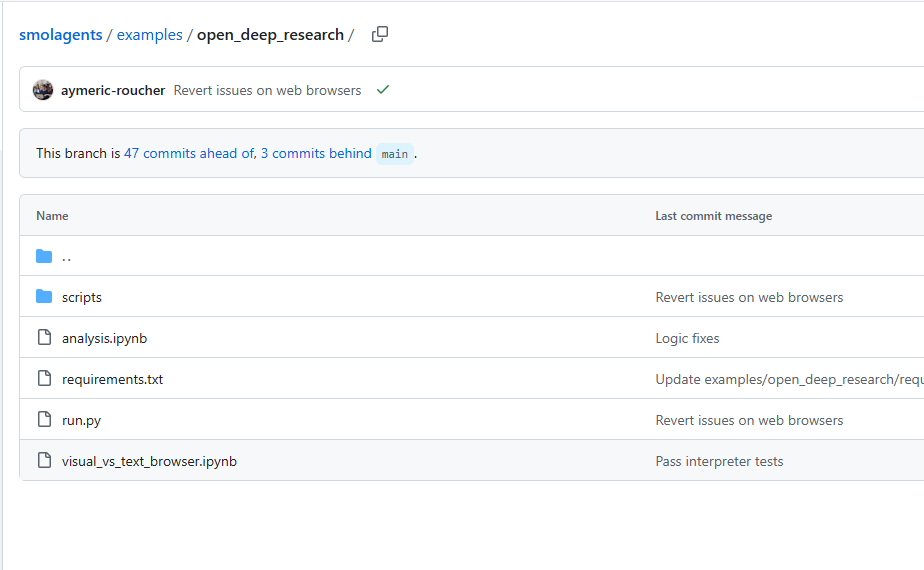Hugging Face announced the launch of an open source alternative to the OpenAI in -depth research tool, which aims to break the restrictions on the OpenAI payment model and provide more users with in -depth research capabilities. This project combines the OPNAI O1 model and an open source agency framework, allowing the model to independently retrieve network information, and has functions such as text browsing, file operation and data calculation. Although the in -depth research tool in the GAIA benchmark test is slightly lower than the OpenAI, its open source and accessibility make it occupy a place in the competition and attract a lot of user attention, which once caused the demonstration page to visit too much.

OPNAI showed its in -depth research tools in an event. This tool can automatically prepare research reports about various themes by crawling Internet information. But unfortunately, the tool currently provides limited use permissions for users who subscribe to the ChatGPT Pro plan of $ 200 a month.
The Hugging Face team, including the company's co -founder and chief scientist Thomas Wolf, said that their open -depth research project combines the O1 model and an open source "agency framework". This framework aims to help the model better analyze information and guide them to use search engines and other tools. Although O1 is a proprietary model of paid, researchers believe that it is better than some open models in terms of performance, such as Deepseek R1.
In less than 24 hours, the research team successfully used the O1 model to develop a simple text browser and the "text checker" toolkit, which enabled open -depth research to perform independent navigation on the Internet. This tool can roll browsing webs, operating files, and even running data calculations, thereby improving the efficiency of information retrieval.
According to the GAIA benchmark test, the score of opening in -depth research is 54%. In contrast, the in -depth research score of Openai was 67.36%. Nevertheless, during the test opening depth research, the reporter visited the public demonstration page set up by the Hugging Face team, but failed to use it successfully because of the large number of visits. Eventually, an error prompt was received.
The research team promises to continue to improve the user experience and upload the source code to Github so that the public can view and feedback. It should be noted that there have been many "re -engraving" versions of the in -depth research of OpenAI on the Internet, but most of these versions rely on open models and tools, and lack of the key part of the O3 model. In the reference test of complex questions and information acquisition, the performance of the O3 model is almost unattended.
As the market's demand for in -depth research tools continues to increase, whether the new attempts of Hugging Face can compete with OPENAI products in the future are worthy of our continuous attention.
Project: https://github.com/huggingFace/smoLagents/gaia-submit
Points:
Hugging Face launched the "Open" version of the OpenAI in -depth research tool, which aims to compete with OPENAI's in -depth research tools.
The tool combines the AI model O1 and the open source framework, which can independently search for network information retrieval.
The research team has published the source code in GitHub, and is committed to improving the user experience and welcome feedback.
Hugging Face's open source depth research tool, although it is slightly inferior to OpenAI's paid version in performance, its openness and community participation provides unlimited possibilities for its future development. The GitHub code of the project is disclosed to encourage developers to participate in improvement. This will promote the advancement of technology and ultimately it is expected to change the market structure of deep research tools.